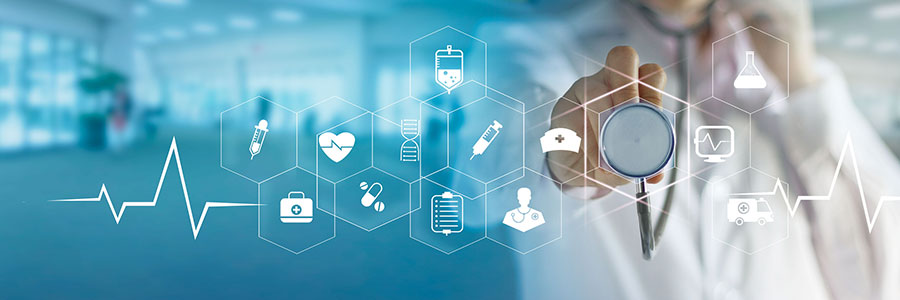Healthcare organizations are increasingly vulnerable to cyberattacks from malicious insiders. Whether it's an employee, a contractor, or a vendor with access to sensitive data, these insider threats can cause significant financial and reputational damage.
Healthcare cybersecurity: 5 Strategies to protect against insider threats
The many benefits of MSPs in the healthcare sector

Managed IT services providers (MSPs) are increasingly becoming in order to keep up with the ever-evolving healthcare landscape OR in order for healthcare businesses to keep up with the ever-evolving landscape of the industry. MSPs provide a suite of benefits that can help healthcare providers deliver better patient care, manage their technology, and meet important regulations.
What HIPAA compliance means to your business

If your company is in the healthcare industry or provides medical services, you are required to comply with HIPAA regulations. In this article, we’ll talk about what HIPAA is, and what being HIPAA-compliant means to your business.
What is HIPAA
The Health Insurance Portability and Accountability Act of 1996 (HIPAA) is a federal law that establishes national standards to safeguard sensitive patient health information from being released without permission.
HIPAA compliance guidelines for social media usage

Social media can be a powerful tool for healthcare organizations to spread awareness. But in using social media, these organizations must adhere to specific Health Insurance Portability and Accountability Act (HIPAA) compliance standards. In this blog post, we will discuss guidelines for HIPAA compliance regarding the use of social media.
The benefits of cloud computing to patients and healthcare providers

There's no doubt that cloud computing is revolutionizing healthcare. From improving patient care to making medical records more secure, the cloud is making continues to make a big impact in the world of healthcare. Here are just a few of the benefits of using cloud solutions in your healthcare practice.
What an MSP can do for healthcare providers

More and more healthcare organizations are turning to managed IT services providers (MSPs) for their IT needs. Outsourcing their IT functions enables hospitals and clinics to focus on being healthcare providers rather than IT professionals. Here are some of the best benefits of hiring one:
MSPs guarantee quick response times
Constant system uptime and availability can be a matter of life and death in the healthcare industry, which makes quick IT support response times crucial for any healthcare practice.
4 Important details about HIPAA compliance

Getting your practice up to code when it comes to Health Insurance Portability and Accountability Act (HIPAA) regulations can seem challenging upon first glance, but knowing where your IT efforts must be prioritized is the first step. In this article, we’ll zero in on four of the most critical items you must look into to become HIPAA-compliant.
HIPAA calls for careful social media behavior

Healthcare providers that use social media platforms like Facebook and Twitter can interact with their patients, advertise new services, and communicate urgent announcements. Even though there’s immense potential for social media to improve healthcare, it can also expose patient-specific information when used irresponsibly.
Stop insider threats within healthcare organizations
Mobile device management: A game changer for healthcare

More hospital wireless networks are making use of mobile device management (MDM) software to monitor every device connected to their network, and for good reason, too. Here are the numerous benefits MDM offers to healthcare organizations.
Compliance
Governments have established several regulations, such as HIPAA, to protect patient records, but mobile devices are posing a major challenge to these regulations.


